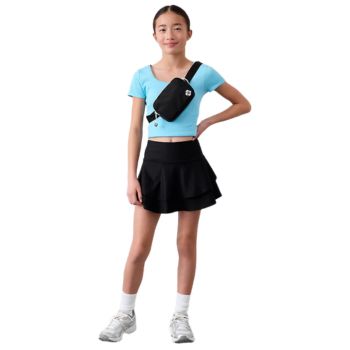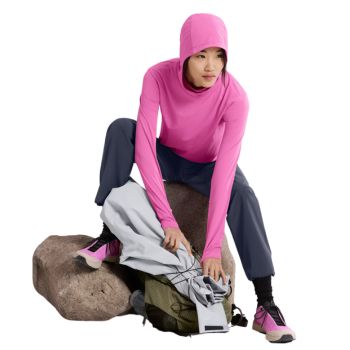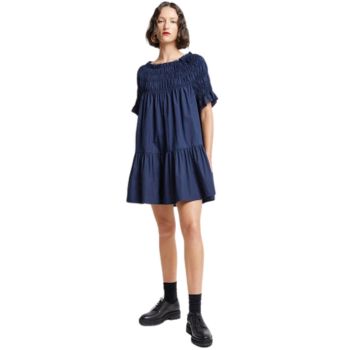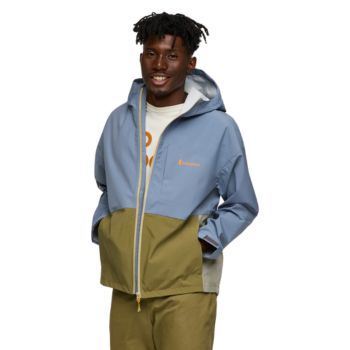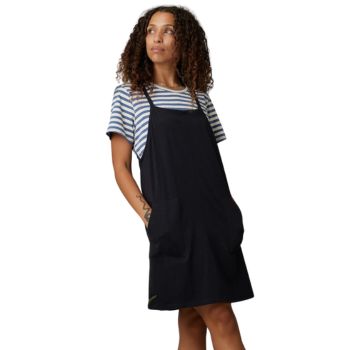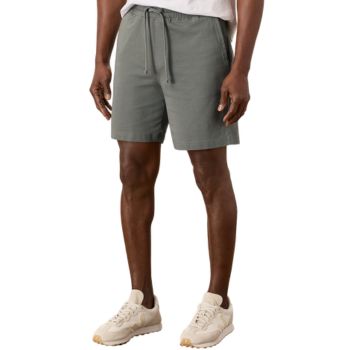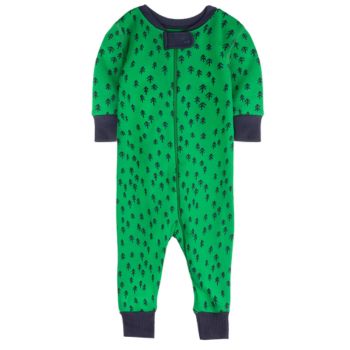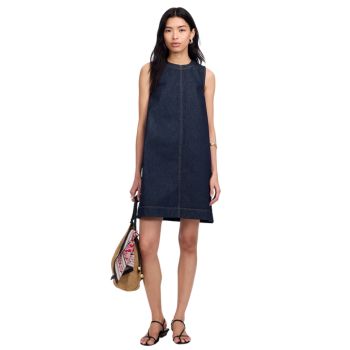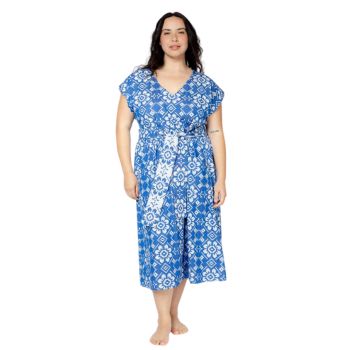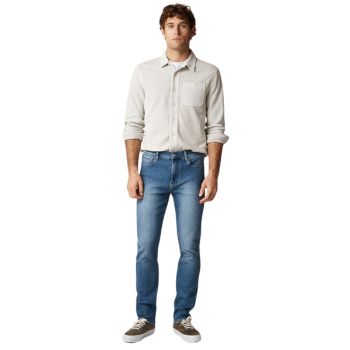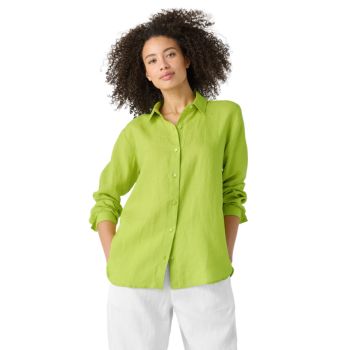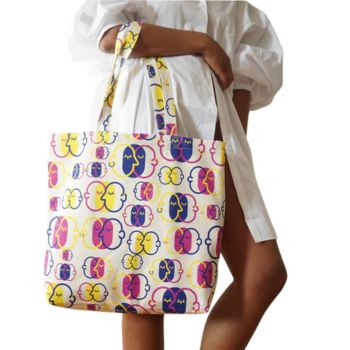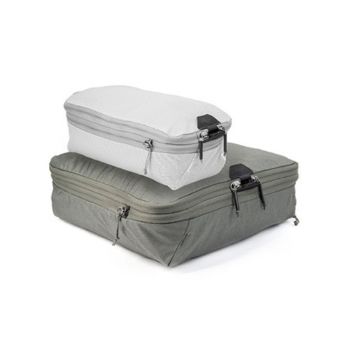Your clothing should express who you are: your unique personality, your style, your values. We wear Fair Trade to know confidently we’re making the kind of fashion statements and impact we want to make.
It’s important to know that the best options for sustainable clothing come from brands that ethically source with both people and planet in mind. By wearing Fair Trade Certified factory-made clothing from brands in this guide and others, we’re helping create sustainable livelihoods, safer working conditions, and desperately-needed transparency in the fashion industry. The additional money that factory employees earn with every sale is used to fund important Fair Trade Community Development Fund projects. These are just a few of the brands featured in our Fair Trade clothing guide of sustainable styles!
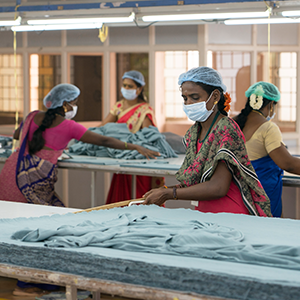
What is Sustainable Clothing?
Sustainable clothing is apparel that is intentionally designed, manufactured, and distributed to reduce harm to the environment, support ethical labor practices, and promote long-term use. This includes using eco-friendly materials such as organic cotton, bamboo, or recycled fabrics, and employing production methods that reduce water usage, energy consumption, and waste. Ethical places to buy clothes use fair labor practices, ensuring that workers are paid fair wages and work in safe conditions. The goal of sustainable clothing is to create a positive impact on the environment, society, and economy while providing high-quality, durable fashion choices.
Where to Buy Sustainable Clothing?
Athleta
Girl Serve Skort
Arc'Teryx
Taema Hoody Women’s
Karen Walker
Mini Orestes Organic Cotton Dress
Cotopaxi
Cielo Rain Jacket – Men’s
Known Supply
Macy Dress – Washed Black
Pact
Stash French Terry Short
Mightly
100% Organic Cotton One-piece Baby Pajamas: Artist Designed Prints
Madewell
Denim Boxy Dress in Essex Wash
ace&jig
Stash French Terry Short
J.Crew
770™ Straight-fit stretch jean in medium wash
Eileen Fisher
Organic Handkerchief Linen Classic Collar Shirt
Fair Trade Bags & Accessory Spotlight
Do People Buy Sustainable Clothing?
Yes, people are buying more sustainable clothing, with the market share expected to reach over 6% by 2026. A 2022 Statista study found that 39% of respondents considered sustainability to be slightly important when buying clothing, while only 3% did not consider it at all important. In addition, a worldwide survey found that over a quarter of consumers have made significant changes to buy more sustainable products.
How to Buy Sustainable Clothing?
Buying products made in a Fair Trade Certified factory is a powerful way to support ethical production. Here are other effective ways to shop more sustainably and reduce your impact on the planet:
- Buy secondhand: This is one of the most sustainable options because it keeps clothes out of landfills and doesn’t contribute to the resources used to produce new clothing.
- Buy less, but better: Choosing high-quality, timeless pieces can reduce the need to buy new clothes and the waste they create. Ask yourself before buying: Will I wear this at least 30 times?
- Prioritize natural and recycled materials: When buying new clothing, look for garments made from organic cotton, hemp, TENCEL™, or recycled fibers. These materials generally have a lower environmental impact and avoid the harmful chemicals and water use associated with conventional textiles.
- Check for ethical certifications: Look for third-party certifications like Fair Trade Certified™, GOTS (Global Organic Textile Standard), or OEKO-TEX®, which help ensure that the clothing was made with respect for people and the planet.By combining mindful habits with support for responsible brands, you can build a wardrobe that reflects both your style and your values.
By combining mindful habits with support for responsible brands, you can build a wardrobe that reflects both your style and your values.
What is the Most Sustainable Type of Clothing?
The most sustainable garments are made from natural, organic, recycled, or biodegradable materials, such as organic cotton, hemp, linen, and recycled fibers. These fabric materials require less water, energy, and harmful chemicals to produce.
By choosing garments thoughtfully, based on materials, ethics, and longevity, you can contribute to a more responsible and sustainable fashion industry.
From Fair Trade Factory Workers

M. Mageswari
“Working here has made me appreciate how products at other factories often go through the same amount of care and work. Each consumer has a unique experience and through supporting us with their fair trade purchases, it’s a great and unique connection.”
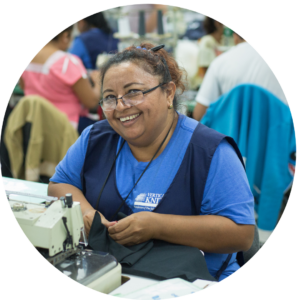
Claire Aguilar
“The Fair Trade Premium is a very important benefit. It motivates us all to continue working hard and also to value what we have. This is hard work, don’t think it’s not. We truly apply the highest standards possible.”

K. Murugan
“When we started the Fair Trade Certified program a few years ago none of our employees had heard of it. There was some confusion at first, but after starting activities, everyone gained confidence – and satisfaction! – in the process. It’s a wonderful way for the worker community to feel engaged and connected to the consumer.”
Join the Fair Trade Movement!
Get involved with a dedicated community of conscious consumers, and stay informed on the latest news and updates, learn about your impact, upcoming events, and more!
